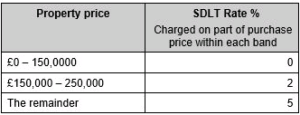Effects of Covid-19
Covid-19 has impacted across the world, not leaving any country unscathed or any individual unaffected. Fortunately, many countries are now moving out of lockdown and will hopefully avoid future spikes of new cases.
Many ways of life and practices have changed significantly. This Article considers three areas, relating to preservation of wealth, where new trends are emerging; private client work, individuals seeking to relocate and corporate planning.
Private Client Work Trends
Working as private client advisors across a number of jurisdictions, Dixcart are seeing a definite shift in emphasis in terms of what clients are now seeking as their primary objectives, in relation to managing their wealth.
The health and protection of individual family members, which has always been very important, has become paramount, and greater attention is being applied to succession planning. Wills are being reviewed and a move towards actively involving the next generation, with family wealth planning, is taking place.
We are witnessing an increasing desire for change of residency, both personal and corporate, coupled with an elevated need for more ‘complete’ advice, not just piecemeal, from specialist advisors. Often a personal move will link to a need to re-think and to re-structure corporate and asset protection vehicles.
There is an increased demand to diversify risk, in particular, in relation to:
- Residence
- Business
location - Investment
location - Protection
from government insecurity or interference
There is also an appetite for greater asset protection, with tax neutrality being a key driver. Private clients also wish to ensure that assets are being held in jurisdictions offering economic and political stability, as well as robust legal systems.
There is an increased demand for hybrid structures and a migration of companies to ‘safe havens’.
Trends In Terms of Individual Relocation
Covid-19 has made us all stop and think about what matters most in life and what we consider to be our main priorities. Where we live and our day-to-day lifestyle is now a very important consideration.
New work practices involving working from home and the mastering of on-line meetings and webinars, initially imposed by Covid-19 restrictions, have made many people realise that they do not have to travel to an office in a city, to work on a daily basis.
It is notable that a number of smaller countries, many of them islands, managed Covid-19 well; locking down early, suffering few cases and therefore moving more speedily out of lockdown, in comparison to other countries.
Dixcart has offices in a number of such locations: Cyprus, Guernsey, Isle of Man, Madeira and Malta. Portugal and Switzerland are also regarded as managing the pandemic very well.
If you would like further information regarding these countries, the type of lifestyle that they offer and the tax advantages that are available to individuals moving there, please see Dixcart’s detailed: Residence and Citizenship Programme (Comparison Table).
An increasing number of high net worth individuals are now seeking to be resident in a different jurisdiction to where their business is ‘resident’. For personal residence, as well as for corporate and asset location, as indicated above, there is a requirement for jurisdictions that are regarded as safe havens.
Priorities for a safe haven in terms of individual residence include; political and social stability, lack of government interference, a relaxed lifestyle and a pleasant and healthy environment in which to raise children and/or retire.
Corporate Planning Trends
Whilst there has been a slowdown in transactional work and deals during the lockdown, we have noted a number of corporate clients taking the chance to focus on planning for their emergence from this hiatus, and ensuring that they have the necessary tools to take advantage of opportunities that may present themselves.
This has ranged from; restructuring their present corporate and operational structures, to establishing new structures that are ready to act fast when presented with attractive deals. Corporate vehicles and/or arrangements that are established and ‘ready to act’ are valuable for corporate groups, especially if the establishment of banking relationships and any potential integration into group funding facilities, treasury and reporting functions, and corporate governance regimes, has already been set-up.
By speaking to professional advisors and corporate service providers such as Dixcart, clients can get ahead and deal with any potential challenges or time delays in advance.
We are also seeing a move towards organisations seeking to remove or restructure inefficient or ineffective arrangements, including redomiciling structures to well respected and compliant jurisdictions.
Additional Information
The Dixcart model of providing integrated advice: private and corporate, across a number of jurisdictions meets the needs of the post Covid-19 era.
We place great emphasis on teamwork and sharing of professional skills within and across the offices, our teams know and regularly meet each other (in person or more recently with regular on-line catch ups).
During lockdown, our inter-office collaboration has increased still further, enabling us to provide solutions, using a mix of relevant asset protection vehicles, across jurisdictions, to meet the particular needs of each client.
If you have any questions, please speak to your usual Dixcart contact or email us on: advice@dixcart.com.












